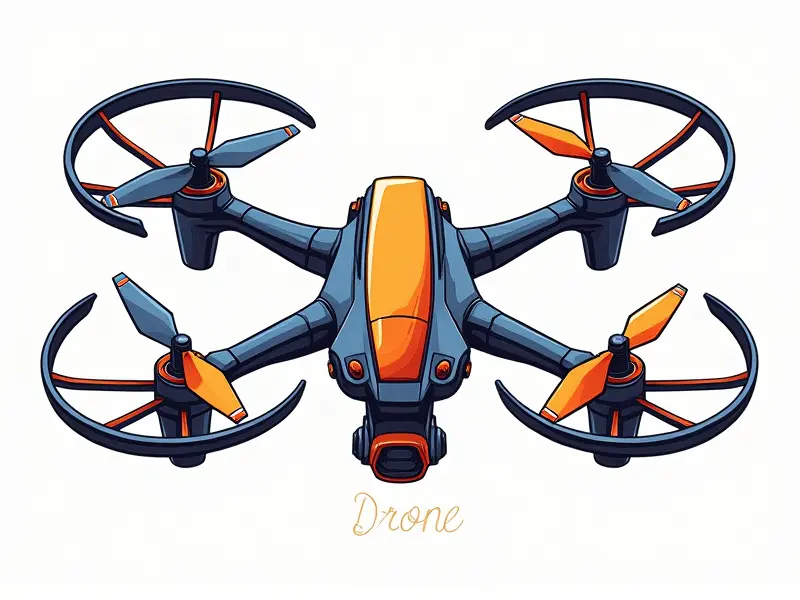Are RC airplanes eco-friendly?

Are RC Airplanes Environmentally Friendly?
The world of remote control (RC) airplanes is a fascinating one, offering hobbyists and enthusiasts the chance to enjoy flight without the need for a pilot's license. However, as environmental concerns grow more pressing, questions arise about the eco-friendliness of these miniature aircraft. In this article, we will delve into whether RC planes are truly sustainable, examining their carbon footprint and exploring options for greener models.
Is Flying RC Planes Sustainable?
The sustainability of flying RC airplanes hinges on several factors, including the type of propulsion used and how these aircraft are powered. Traditional RC planes often rely on internal combustion engines that burn fossil fuels, contributing to air pollution and greenhouse gas emissions. However, advancements in technology have led to electric-powered models that offer a cleaner alternative.
RC Aircraft's Carbon Footprint Examined
To understand the environmental impact of RC airplanes, it is crucial to analyze their carbon footprint. Internal combustion engines emit CO2, NOx (nitrogen oxides), and other pollutants that contribute to climate change and air quality issues. In contrast, electric-powered RC planes produce zero emissions during operation but do have a manufacturing process associated with battery production.
Battery Production Impact
The environmental impact of batteries used in electric RC planes is significant due to the resources required for their manufacture. However, advancements in battery technology continue to improve efficiency and reduce waste, making these power sources increasingly viable from an eco-friendly standpoint.
Can RC Planes Be Eco-Conscious?
While traditional RC planes may not be inherently green, there are ways to make them more environmentally conscious. For instance, choosing rechargeable batteries over disposable ones can significantly reduce waste. Additionally, opting for electric models that run on renewable energy sources further enhances their sustainability.
Eco-Friendly Practices
- Use Rechargeable Batteries: Opting for rechargeable lithium-ion or nickel-metal hydride batteries reduces the need for constant battery replacement and disposal.
- Purchase Green Models: Look for RC planes that are designed with eco-friendliness in mind, such as those made from recycled materials or using sustainable manufacturing processes.
Green RC Aircraft: A Reality?
The development of green RC aircraft is an ongoing process. Manufacturers are increasingly focusing on creating models that minimize environmental impact through the use of electric propulsion and eco-friendly materials. As technology advances, we can expect to see more sustainable options becoming available.
Innovative Technologies
- Solar-Powered RC Planes: Some pioneering designs incorporate solar panels into the wings or fuselage, allowing for extended flight times without reliance on batteries.
- Biofuel Engines: While less common in hobbyist models, biofuels offer a cleaner alternative to traditional petroleum-based fuels and may become more prevalent as research progresses.
The Green Side of RC Aviation
The green side of RC aviation encompasses not only the aircraft themselves but also how they are used. Practices such as maintaining equipment properly, avoiding unnecessary flights, and participating in community recycling programs can further enhance the eco-friendliness of this hobby.
Maintenance Tips for Eco-Friendly Use
- Regular Servicing: Keeping RC planes well-maintained ensures they operate efficiently, reducing energy waste and extending their lifespan.
- Eco-Conscious Flying Habits: Limiting flights to when necessary and avoiding excessive use of fuel or battery power contributes to a more sustainable hobby.
RC Planes & Environmental Impact
The environmental impact of RC planes is multifaceted, involving both direct emissions from operation and indirect effects related to manufacturing and disposal. By adopting eco-conscious practices and choosing green models, enthusiasts can mitigate these impacts and enjoy the hobby responsibly.
Direct vs Indirect Impacts
- Direct Emissions: Fossil fuel combustion in traditional RC planes releases pollutants directly into the atmosphere during operation.
- Indirect Effects: Manufacturing processes, battery production, and disposal practices all contribute to environmental degradation over time.
Are Electric RC Planes Truly Green?
The question of whether electric RC planes are truly green depends on several factors. While they produce no emissions during flight, their overall sustainability is influenced by the source of electricity used for charging and the lifecycle impact of battery production.
Evaluation Criteria
- Energy Source: Using renewable energy sources like solar or wind power to charge batteries significantly enhances the eco-friendliness of electric RC planes.
- Battery Lifespan: Longer-lasting, high-capacity batteries reduce waste and lower environmental impact over time.
RC Airplanes: Earth-Friendly or Not?
The question of whether RC airplanes are earth-friendly is complex. While traditional models may have a higher carbon footprint due to fossil fuel use, advancements in technology offer promising alternatives that can make the hobby more sustainable. By adopting eco-conscious practices and choosing green options, enthusiasts can enjoy their passion while minimizing environmental impact.
Conclusion
The world of RC airplanes is evolving towards greater sustainability, with electric models leading the way as a cleaner alternative to traditional internal combustion engines. While challenges remain in terms of battery production and energy sources, ongoing innovations promise a greener future for this beloved hobby. By embracing eco-conscious practices and supporting green technologies, enthusiasts can contribute positively to environmental conservation efforts.

